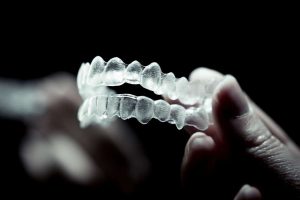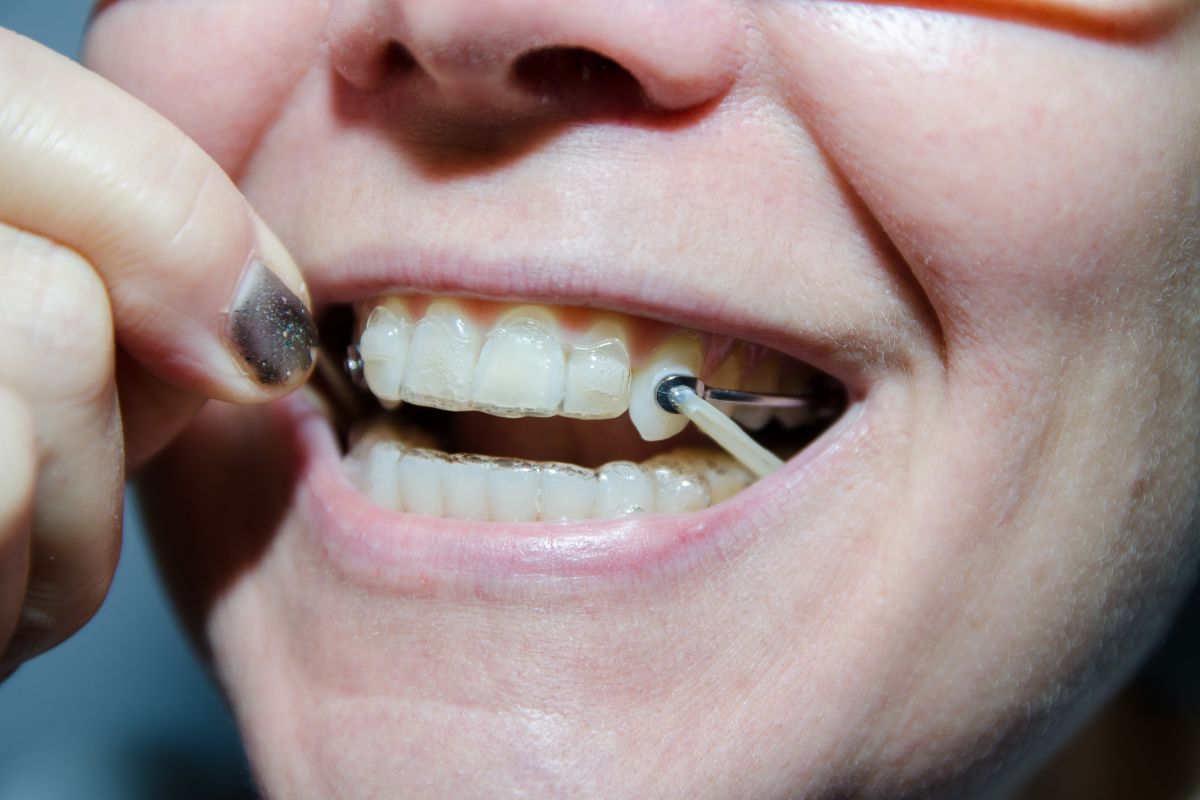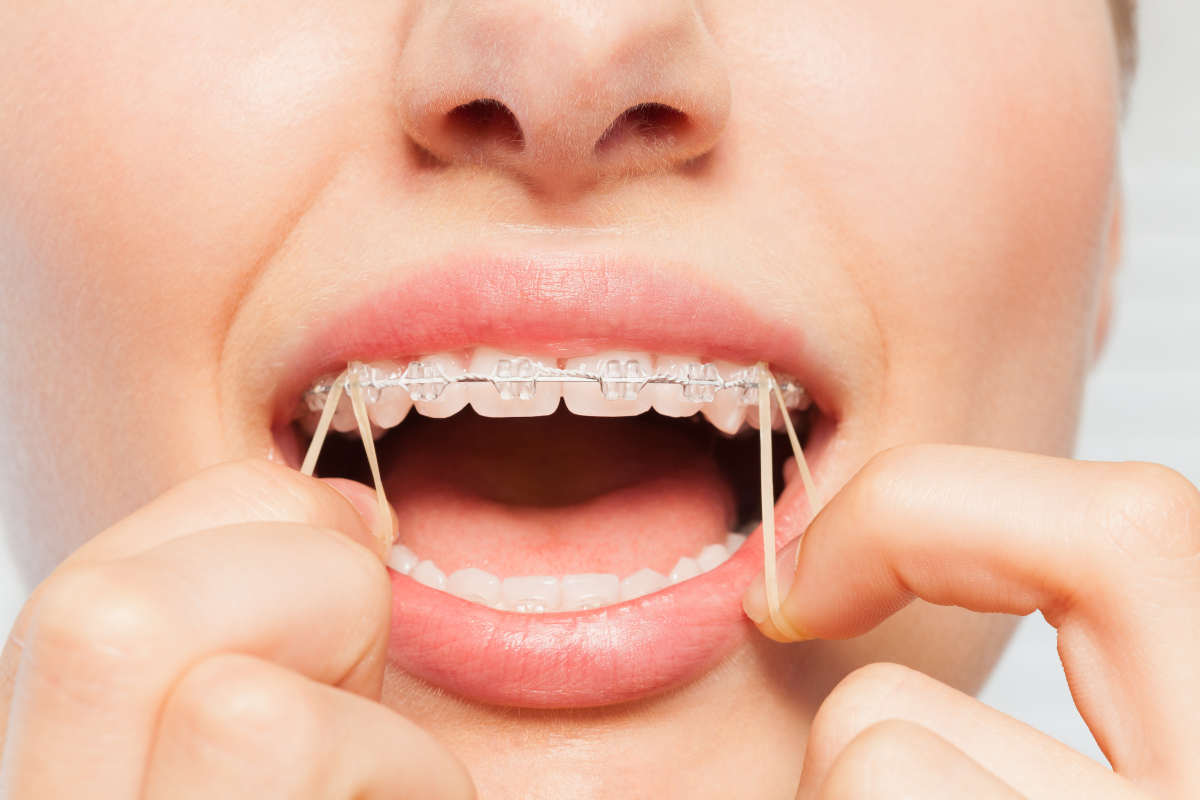

Congratulations on completing your orthodontic treatment! You’ve invested time and effort to achieve a beautiful smile, and now it’s crucial to maintain your orthodontic results. Proper care and maintenance will keep your teeth straight after braces and healthy in the long run.
This article will provide valuable tips and guidance on maintaining your orthodontic results effectively. Read and keep your teeth straight after braces!!!
Introduction
Orthodontic treatment can correct dental issues, such as misaligned teeth, overcrowding, or bite problems. However, the work doesn’t end once the braces or aligners come off. It’s crucial to follow post-treatment care instructions diligently to preserve the results you’ve achieved. By taking the proper steps, you can enjoy a beautiful, healthy smile for years to come.
Follow Your Orthodontist’s Instructions
Your orthodontist will provide specific instructions for post-treatment care, including the use of retainers. Retainers help stabilize your teeth in their new positions, preventing them from shifting back. It’s essential to wear your retainers as instructed by your orthodontist. Usually, they recommend wearing retainers full-time initially and then transitioning to wearing them only at night. Be sure to follow this schedule to maintain the alignment of your teeth effectively.
Maintain Oral Hygiene
Good oral hygiene is crucial for everyone, but it’s even more critical when you’ve had orthodontic treatment. Proper brushing and flossing techniques help keep your teeth and gums healthy and prevent potential issues. Make sure to brush your teeth at least twice a day using a soft-bristled toothbrush and fluoride toothpaste. Pay extra attention to cleaning around the brackets or aligners to remove any food particles or plaque buildup. Flossing is equally important, and you can use floss threaders or interdental brushes to reach between the wires and around the brackets. Additionally, consider using oral care products specifically designed for orthodontic patients, such as mouth rinses or irrigators, to enhance your oral hygiene routine.
Monitor Your Diet
Diet plays a significant role in maintaining your orthodontic results. Certain foods can put excessive pressure on your teeth or cause damage to orthodontic appliances. It’s advisable to avoid sticky or hard foods that could potentially dislodge brackets or bend wires. These include chewing gum, hard candies, nuts, popcorn, and ice. On the other hand, you can enjoy plenty of orthodontic-friendly foods. Soft fruits and vegetables, yogurt, cheese, and lean proteins are all excellent choices. By being mindful of your diet, you can protect your orthodontic appliances and help maintain your results.
Regular Dental Check-ups
Routine dental check-ups are essential for everyone but vital for individuals who have undergone orthodontic treatment. Regular visits to your dentist allow for thorough examinations of your teeth and gums, ensuring everything is in optimal condition. Your dentist can identify potential issues early on and provide appropriate necessary treatments. Additionally, remember to schedule regular appointments with your orthodontist to monitor the stability of your results and make any adjustments if needed.
Stay Active and Avoid Bad Habits
Maintaining your orthodontic results involves more than just taking care of your teeth. It’s important to be mindful of habits that can affect your oral health and the stability of your treatment. Activities such as nail-biting, pen-chewing, or teeth grinding can exert excessive force on your teeth and orthodontic appliances, potentially compromising the alignment. Consider adopting strategies to overcome these habits, such as using stress balls or seeking professional help. Furthermore, regular physical activity contributes to oral health by promoting good blood circulation and reducing the risk of gum disease. So, stay active and incorporate exercise into your daily routine.
Protect Your Teeth During Physical Activities
Engaging in physical activities and sports is excellent for your overall well-being, but protecting your teeth and orthodontic appliances is essential during these activities. A blow to the mouth can damage brackets, wires, or even your teeth. To prevent injuries, it’s highly recommended to use a mouthguard while participating in contact sports or any recreational activities that pose a risk. Mouthguards act as a cushion, absorbing the impact and protecting your teeth and orthodontic appliances. Talk to your orthodontist about obtaining a custom-fit mouthguard that provides the best level of protection. Remember, communication is key! Inform your orthodontist about your participation in any physical activities, as they can provide you with specific guidance and recommendations based on your unique situation.
Embrace Lifestyle Changes
Maintaining your orthodontic results goes beyond specific instructions or guidelines. It’s about embracing positive lifestyle changes promoting oral health and well-being. Practice good nutrition by consuming a balanced diet rich in vitamins and minerals that support dental health. Manage stress effectively through techniques like meditation or engaging in activities you enjoy. Remember, a healthy mind and body contribute to a healthy smile. By adopting these positive lifestyle changes, you can maintain your orthodontic results and enhance your overall quality of life.
Conclusion
Maintaining your orthodontic results requires commitment and proper care. By following your orthodontist’s instructions, maintaining excellent oral hygiene, monitoring your diet, scheduling regular dental check-ups, avoiding harmful habits, protecting your teeth during physical activities, dealing with emergencies promptly, being cautious with teeth whitening, and embracing positive lifestyle changes, you can ensure the longevity of your beautiful smile. Remember, your orthodontic journey is a lifelong commitment, and with the proper care, you can enjoy the benefits of a straight and healthy smile for years to come.
FAQs
FAQ 1: How long should I wear my retainers?
Typically, orthodontists recommend wearing retainers full-time initially and then transitioning to wearing them only at night. However, the duration may vary depending on individual circumstances. It’s important to follow your orthodontist’s instructions regarding retainer use to maintain your orthodontic results effectively.
FAQ 2: Can I eat hard foods with braces?
It’s best to avoid eating hard, crunchy, or sticky foods that can damage your braces or orthodontic appliances. These include chewing gum, hard candies, nuts, popcorn, and ice. Stick to orthodontic-friendly soft foods to protect your appliances and maintain your results.
FAQ 3: What should I do if my orthodontic appliance breaks?
If your orthodontic appliance breaks or a wire becomes loose, it’s important not to attempt to fix it yourself. Contact your orthodontist immediately for guidance. In the meantime, you can use orthodontic wax to temporarily cover any sharp or discomforting ends.
FAQ 4: Can I use teeth whitening products while wearing braces?
It’s generally recommended to wait until your orthodontic treatment is complete before considering teeth whitening procedures. Whitening products can damage or weaken orthodontic materials and affect the color consistency of your teeth. Consult with your orthodontist about the best timing and options for teeth whitening.
FAQ 5: How often should I visit my orthodontist after treatment?
The frequency of post-treatment visits to your orthodontist may vary. Typically, they will schedule periodic check-ups to monitor the stability of your orthodontic results and make any necessary adjustments. It’s essential to attend these appointments as recommended to ensure the continued success of your treatment.
Recent Posts
-
Inside the World of Orthodontists: Education, Precision, and Transformative Treatments
The Evolution of Orthodontics: A Brief Historical Overview Orthodontics, an integral branch…
-
How Orthodontists Plan a Treatment for a Beautiful Smile
Understanding the Patient's Unique Needs A positive self-image and confidence can result…
-
Unleash Your New Smile! Here's What You Need to Know Before Braces Removal
Are you excited to see your smile transformation? Taking your braces off…
-
Traits That a Good Orthodontist Should Have
Choosing an orthodontist is half your smile transformation journey. That’s why in…
-
How Braces Can Help Fix an Asymmetrical Jawline
An asymmetrical jawline can cause concern for many individuals, affecting their appearance…
-
Can Cavities Be Reversed?
Cavities are among the most common dental issues people of all ages…
-
What to Prepare During Your First Braces Appointment
Are you about to embark on your journey to a beautiful smile…
-
Taking Care of Baby Teeth: A Comprehensive Guide for Parents
Caring for our children's health is one of our most crucial responsibilities…
-
What are Brace Elastics?
If you or someone you know is undergoing orthodontic treatment with braces,…
-
Difference Between an Overjet and Overbite: A Comprehensive Guide
Two orthodontic terms that often confuse our patients are "overjet" and "overbite."…







 Instagram
Instagram
